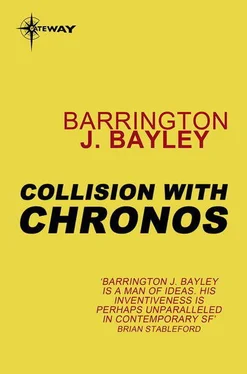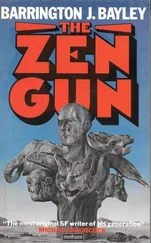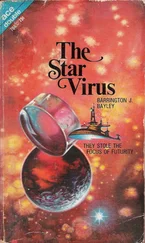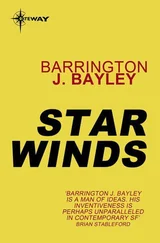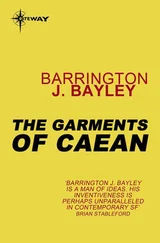A lanky Amhrak girl chatted to him, sipping a glass of wine synthesised by a newly perfected process. “You must find our village rather dull after Pradna,” she said, smiling.
“I wasn’t actually in Pradna,” he told her. “I spent most of my time in the field, working on alien ruins. Pradna is a pretty ghastly place anyway, to tell you the truth. I like it much better here… in spite of what’s happening.”
As he spoke the last words he had the sinking feeling of having committed a faux pas . These people could have a taboo about speaking of… that, he thought timidly. But the girl merely laughed, quite without strain.
“It must be really awful in Pradna,” she joked, “to prefer that. ”
Herrick had opened the double doors of his workshop and was fiddling with his transmitterless television receiver. To hide his embarrassment Heshke joined him, and for some minutes Herrick phased through the magnetowaves, seeking coherent visuals and gaining more than the usual number.
“Conditions are remarkably conducive tonight,” Herrick commented with some surprise. “The nodes are particularly strong. Here comes a good one.”
The view, as most of them were, was from the air. It showed the outskirts of a town of moderate size, judging by the layout of the buildings. The angle of the sun revealed the time to be midafternoon.
“Do you recognise it?” Herrick asked him.
Heshke shook his head. It could have been any of a thousand such towns.
Instead of dissipating after a few seconds, which was what normally happened, the picture lingered. Herrick managed to steady it further, until the quality was almost of commercial standard.
“At last I’m getting somewhere,” Herrick said sadly. “It seems a pity to – what’s that? ”
The frame of the picture itself remained steady and bright; but certain elements in it were fading. While the two men watched (Heshke was vaguely aware of other eyes peering over his shoulder through the double doors) all the buildings in the picture seemed to melt away, leaving a bare background. Not only that, but a grove of trees also vanished, together with a stretch of grass.
What remained was bare, arid soil.
“Some effect of the system?” Heshke suggested mildly.
“I don’t see how,” Herrick muttered. “There are television systems that could produce this effect – systems employing a memory bank to hold persistent elements in the picture, so that it’s built up piece by piece – but I rely on a simple scanning procedure. Look, you can see the places where those buildings had stood. It’s just as if the whole town had disappeared into thin air.”
“Then you must have been picking up two different images superimposed,” Heshke said. “One faded out and you’re left with the other.”
“Yes, that might explain it.” Herrick nodded reluctantly. “That must be it. But as to how they came to blend so perfectly – and I thought I’d licked the tuning problem, too.”
Heshke wandered out of the room, leaving Herrick still absorbed in his apparatus.
He went onto the verandah and looked out over the desert. The night sky seemed to hold a strange, flickering light, as if lightning was playing somewhere beyond the horizon.
The attempted return to Brourne’s HQ was hectic.
They’d gone about half a mile in the squad’s armoured runabout – the Titans scorned to use Retort City’s own public transport system – when they came upon one of the main arteries that had been cleared to give the city’s new masters easy access. The highway was thundering with traffic, all of it heading toward the sound of bombs and gunfire that came from the city’s bottleneck end.
“Toward the front,” muttered the sergeant.
The wild looks on the faces of the Titans who clung to the swaying gun carriages told them that the situation had more than a measure of desperation. No natives were in sight: presumably they were all huddling somewhere, terrified of Titan savagery when the going got tough. A Titan soldier, for example, would shoot anyone who happened to be standing in his way when a sense of urgency overtook him.
“What in the Mother’s name is going on, sarge?” one of the troopers asked.
“Must be something big.” He ruminated. “Maybe the Chinks were holding onto their defences.” He nudged the driver. “Our job is to get this man to HQ. Get across the highway when there’s a gap and go by way of the secondary route.”
The highway came in from the main supply dump, close to the dock. HQ was in a central part of the city. Eventually they crossed the busy viaduct and continued, past empty tiers, galleries and plazas.
“This place gives me the creeps,” someone grumbled. “I’ll be glad to get back to Pradna.”
Ahead of them was a machine gun post. Troopers yelled at them, brought them to a halt.
“You can’t go up there,” a corporal told them, “it’s cut off.”
“Cut off by who? ”
“The Chinks have an army,” the corporal said stolidly. “Everything’s in chaos.”
Suddenly the machine gun gave out a short stuttering burst. “Here they come!” yelled the man firing it.
The sergeant reached into the runabout and brought out his burp gun. He could see them, too, now, emerging from the end of a tree-lined avenue. They wore rough, blue uniforms and wide-brimmed dome helmets.
He rapped out orders. The armoured runabout proceeded slowly up the avenue, its occupants firing from its slits. He stayed with the machine gun crew, down on one knee, peering over the barricade and fingering his burp gun.
And then, without any warning, the Chinks were upon them: all around them, as if they’d dropped from the nonexistent sky.
Titan-Major Brourne knew already that he’d committed a tactical error when he moved his HQ from the cramped accommodation at the dockside to his present palatial quarters near the centre of the city.
At the time it had seemed reasonable. The city had been taken. He needed an administrative centre, and the dock just wouldn’t do.
But now, up through the bottleneck from the Production Retort which all his scouts had assured him was empty, had come a huge army, well-prepared and well-disciplined. Brourne still only had an inkling of where this army had really come from, but in any case explanations, at this stage, were very low down on his list of priorities.
When it first became clear that the threat was serious he’d given thought to the route back to the dock, to a withdrawal to the ships floating outside the city if necessary. With deep chagrin he learned that the dock was one of the first points to be seized by the enemy. His forces were still trying to retake it.
Elsewhere the story was one of repeated disaster. The invasion force was overwhelming, and none of the measures he’d taken to retain military control seemed effective. The Chinks were able to flit in and out of existence like shadows, by means of some device they possessed, apparently, and so were able to infiltrate all his fixed defences. They carried only light arms and knives, but more often than not fought using an unarmed combat technique that was as deadly as anything he’d come across.
His ire rising, Brourne listened to the distressing tale of section after section of the city falling, of the enemy appearing simultaneously everywhere, that the battle reports told. He slammed down the key that opened the line to all district commanders. For some minutes now they’d been requesting instructions.
“Kill everything that moves!” he roared. “Have you got that? Everything that moves!”
“Haven’t I met you somewhere?” Leard Ascar asked, squinting quizzically at the white man wearing the uniform of the Lower Retort invaders.
Читать дальше
